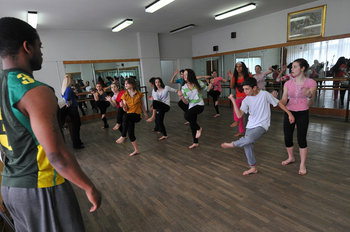|
| |
Inner strengths are cognitive and emotional capacities that allow an individual to direct their thinking and behavior in positive and productive ways. These can be viewed as the foundation for all other human strengths. For example, an inner strength such as confidence is a basis for social strengths such as relationship building or communication strengths such as public speaking. The following are common examples of an inner strength.
Backbone | Bravery / Courage | Candor | Capacity For Joy | Capacity For Love | Capacity for Introspection | Capacity for Perspective | Confidence | Coolness | Creativity | Curiosity | Determination | Diligence | Discipline | Emotional Capacity (e.g. ability to feel broad range of emotions) | Emotional Stability | Enthusiasm | Fairness | Flexibility / Adaptability | Forgiveness | Gratitude | Grit | Honesty | Humility | Independence | Inner Beauty / Elegance of Mind | Inner Calm | Inner Spark | Kindness | Liveliness | Mental Stamina | Modesty | Moral Compass | Openness | Optimism | Original Thinking | Passion | Patience | Peacefulness / Even-Temper | Perceptiveness | Perseverance | Playfulness | Pragmatism | Prudence | Rational Thought | Realism | Reasonableness | Self-Awareness | Self-Direction | Sense of Humor | Sense of Imagination | Sense of Purpose | Spirituality | Temperance | Toughness | Vigor | Work Ethic |
VirtuesMany inner strengths can be viewed as virtues. Classical Western philosophy viewed virtues as a middle path between lack and excess. For example, a lack of confidence or excessive confidence wouldn't be a virtue -- a virtue occurs where your confidence is reasonable.
Human Experience
This is the complete list of articles we have written about human experience.
If you enjoyed this page, please consider bookmarking Simplicable.
© 2010-2023 Simplicable. All Rights Reserved. Reproduction of materials found on this site, in any form, without explicit permission is prohibited.
View credits & copyrights or citation information for this page.
|































